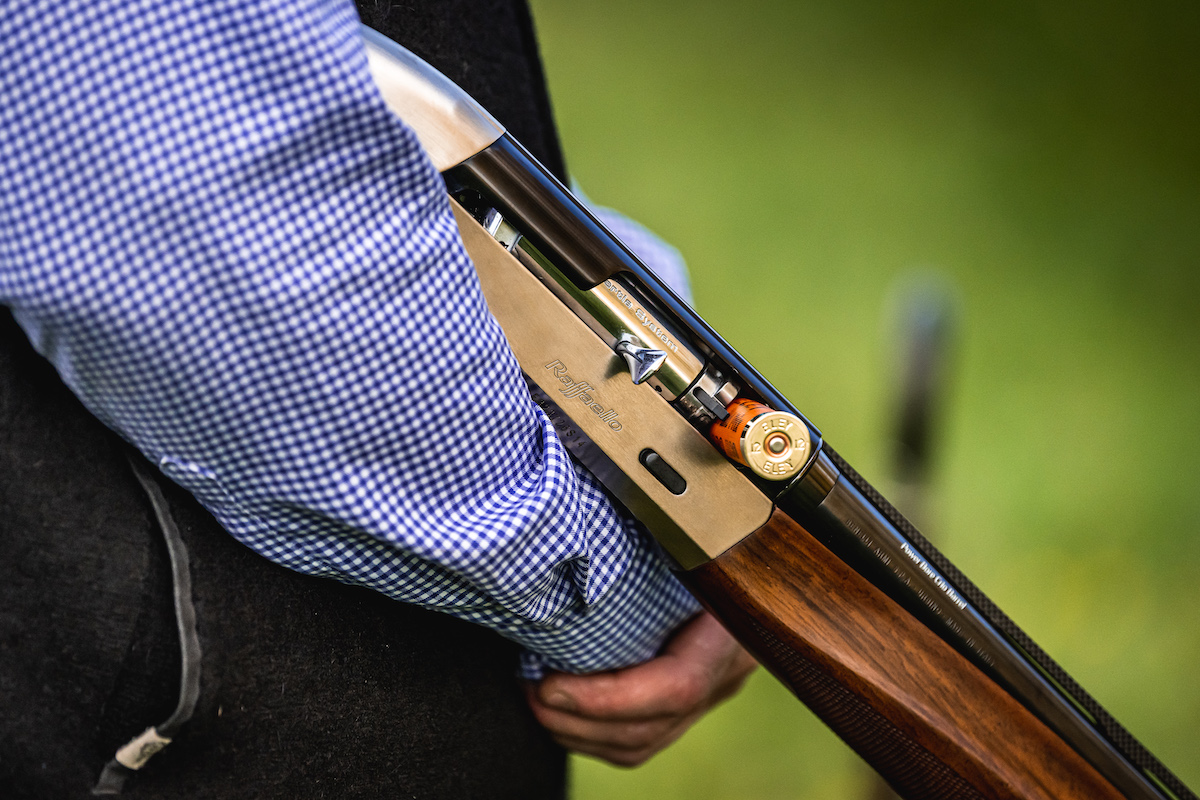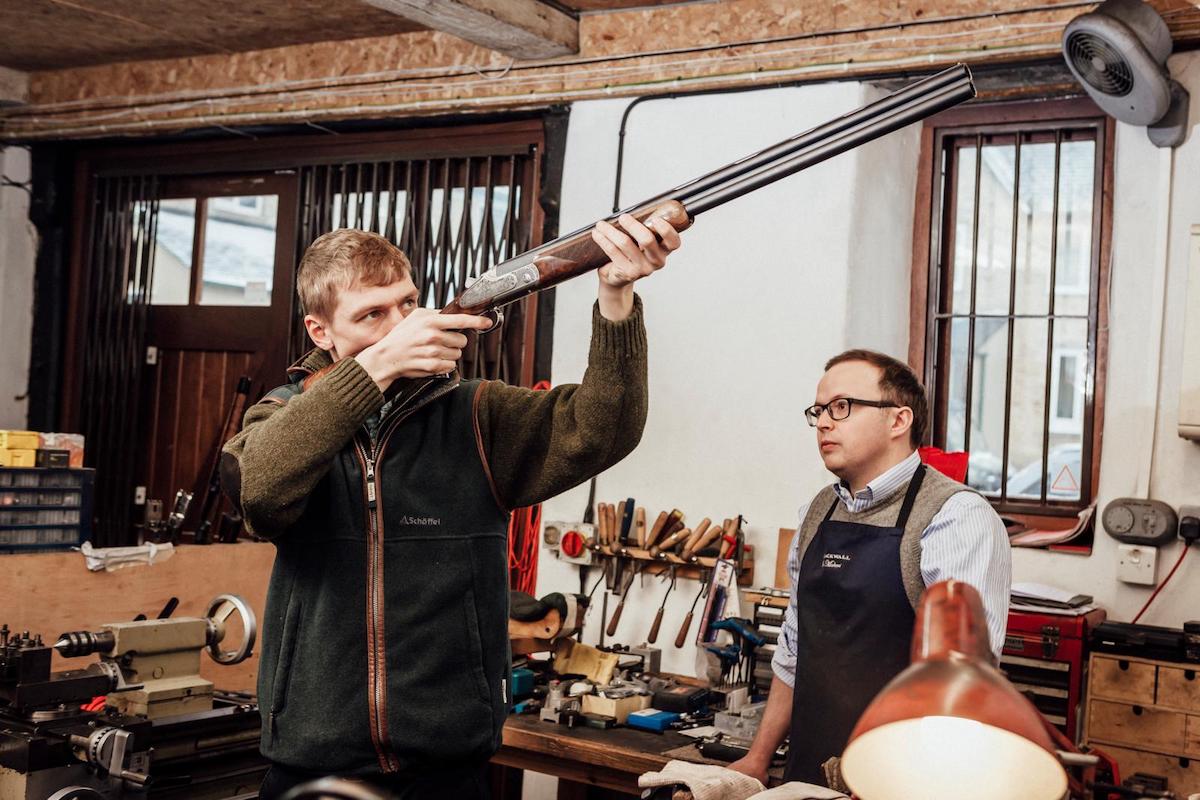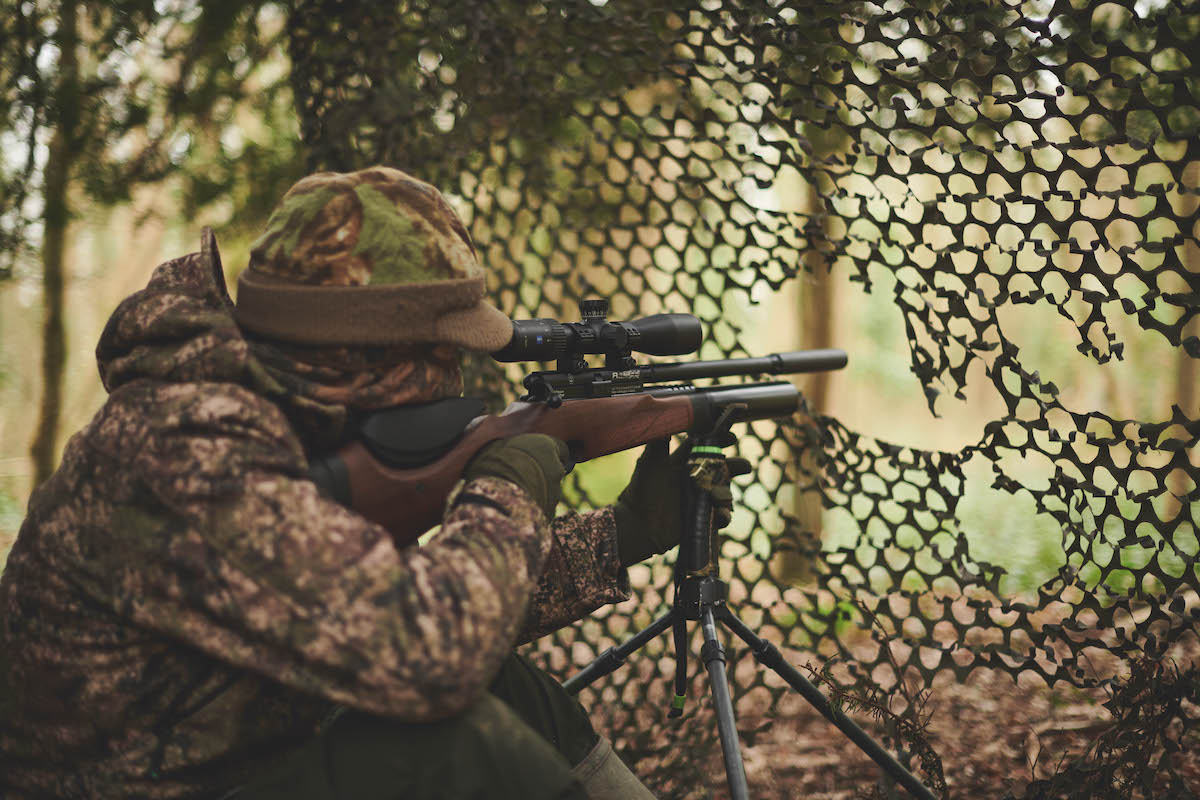Semi-automatics on driven days? Yes, says Simon Reinhold
Simon Reinhold asks if the fieldsports community should take a bold leap forwards and embrace the use of semi-automtics on driven days

Simon makes it clear his semi-auto is safe, using a cartridge as a breach flag
This is likely to upset some of you, but I can see no logical reason why semi-automatics on driven days can’t be used to shoot a pheasant. In fact, if I attached a false bottom barrel to the underside of my semi-auto that stopped exactly at the muzzle of the real barrel, in a properly spaced team of Guns, it is unlikely that you would notice I wasn’t using an over-and-under.
Yet even talking about shooting anything classed as ‘game’ with one elicits howls of protest and accusations of treachery to some unwritten tenets of tradition that nobody can accurately quote. Tradition that some might say has long since been sacrificed on the altar of the cult of high-bird shooting. Shooting has changed much in the past half-century — should this self-imposed ban on the semi-auto finally be lifted?

Ssemi-autos have long been an acceptable choice for pest control, such as corvid shooting
Many of the great names in gunmaking experimented with making three-barrelled shotguns. They are rare, and when they come on to the market they create excitement and command a premium price. Their scarcity is not because they were considered deeply unsporting, it is because they were difficult and therefore expensive to make.
The Edwardian gentlemen, who may have bought them as curios, were acutely aware the highest rate of fire achievable during a drive was not by using one of these three- barrelled guns, but a trio of sidelock ejectors with two loaders and a cartridge boy. They had no ethical qualms about getting six barrels off in quick succession. Even today, we generally accept the four barrels fired using double guns, yet we struggle to countenance the use of a semi-auto — why?
Semi-automatics on driven days
What you use for game shooting is, in my opinion, of far less importance than how you use it. If, with the help of your loader, you are blatting all four barrels from your pair of guns into one average hen pheasant, I, like many others, would consider that unsporting. But cleanly killing four high, curling birds with an efficient change of guns and no wasted effort is the pinnacle of sporting performance all too rarely seen in the field. It is down to you as the user to be sporting with your gun.
If you are still worried that the temptation to put three shots into one bird would overcome you if you used semi-automatics on driven days, then let me allay your fears by pointing out this: you don’t have to put three in it. Even if you did put three in it, you don’t have to take all three shots (Section 1, firearms-rated semi-autos are restricted in use by conditions on the certificate in question and are illegal for certain uses — wildfowling, for instance).

Using a pair of guns and a loader isn’t frowned upon, despite the ability to fire four barrels
Indeed, there are some circumstances where a semi-auto may in fact be a benefit over other types of gun. They are light to carry and, certainly with gas-operated mechanisms, soft to shoot. Recoil management has always been important in gunmaking and game shooting. It is highly likely that in a world of non-lead shot it is going to come to the fore. We have known for some time that we have to drive less-dense pellets faster and with different powders to achieve the level of lethality required, but with that comes a price.
Some non-lead cartridges I have tested over the past few years have had such unbearable recoil that I haven’t been able to finish a box of 25. These cartridges do not make the grade. Even those high-performance steel cartridges that do prove their worth have increased felt recoil in any given gun.
It is probable that we will see more flinches in lessons at the clay ground in the future as game Shots transition over to steel, and recoil reduction is going to be something the gunmakers will need to pay some attention to.

On driven days, Shots move from peg to peg with their gun safely unloaded in a gun slip – whether it’s an over-and-under or a semi-auto
Trustworthy
Semi-autos already address this, and indeed the few that have been allowed into the line by shoot captains seem to be when an individual has a medical need to reduce recoil. Our collective snobbery appears to ease when we are faced with the prospect of ending someone’s shooting career by gripping too tightly to tradition.
If someone with a neck or shoulder problem is deemed trustworthy enough not to unload three shots into one bird, then why not the rest of us?

Semi-autos are a lightweight, soft-shooting option – could they garner wider favour
Another accusation levelled at users of semi-autos is that they are somehow more dangerous than other types of gun. Those taking umbrage regularly refer to a fictional scenario of standing around at elevenses and feeling unnerved that they can’t see a broken and empty barrel while quaffing sloe gin. With few exceptions, the vast majority of driven game Shots transport their gun to the peg and back to the Gun bus unloaded and in a slip. You could, of course, slip a loaded gun if you were absent-minded, but the same could be said for any type of gun. That, again, is down to the user.
Gun safety is a state of mind. The four times I have been shot at and the one time I have been hit were all by elderly gentlemen with too much sloe gin on board, all of them using side-by-sides. On walk/stand days, an easy-to-use visual demonstration that the chamber is empty is a cartridge case sticking out of the side of the action — you simply insert a case between the front of the bolt and the beginning of the chamber. It shows everyone that you have checked it. (Read the gun safety rules here.)

Simon Reinhold puts his Benelli Rafaello semi-auto shotgun to the test shooting game
Semi-autos are often accused of scattering their empties far and wide, but again this is more to do with prejudice than anything else. If you have ever witnessed the astonishing power of the ejectors of some Spanish-made sidelocks, there really is little difference in the distance thrown by the two types of gun. Does it matter whether they pass over your shoulder on their way to the ground or not? Again, it is down to the individual to understand they are accountable for collecting their spent cartridge cases at the end of the drive, no matter what type of gun they are using.
For those of you still thinking that all semi-autos are cheap and nasty and only really fit for pest control by gamekeepers, I would ask you to consider Cosmi. These semi-auto shotguns are some of the finest guns ever made. Their quality and workmanship are second to none. The Superleggero, with its titanium upper and lower receiver, costs a little over £40,000 once VAT has been applied, and that is without adding engraving. (Read why there should be no snobbery about semi-autos
If you still think that your old continental boxlock ejector with no intercepting sear is somehow safer and more noble that any semi-auto, then you are determined to hold on to preconceived opinions based neither on reason nor experience — there is a word for that.

Semi-autos have obvious advantages when it comes to using punchy steel loads on busy driven days
Safety
Soft-shooting and with a single sight plane, the semi-auto should not solely be confined to those who suffer overtly from the effects of recoil. Others should be allowed to experience the benefits. Understanding the equipment you are using is important in gun safety. I am consistently astonished by the number of people who have no idea what cartridges their gun is chambered for. These people are arguably more at risk from harm from their own guns than they are from the average user of a semi-auto.
Semi-autos are no more dangerous than any other type of gun. Gun safety and sportsmanship in the field are both states of mind — not barrel configuration.








